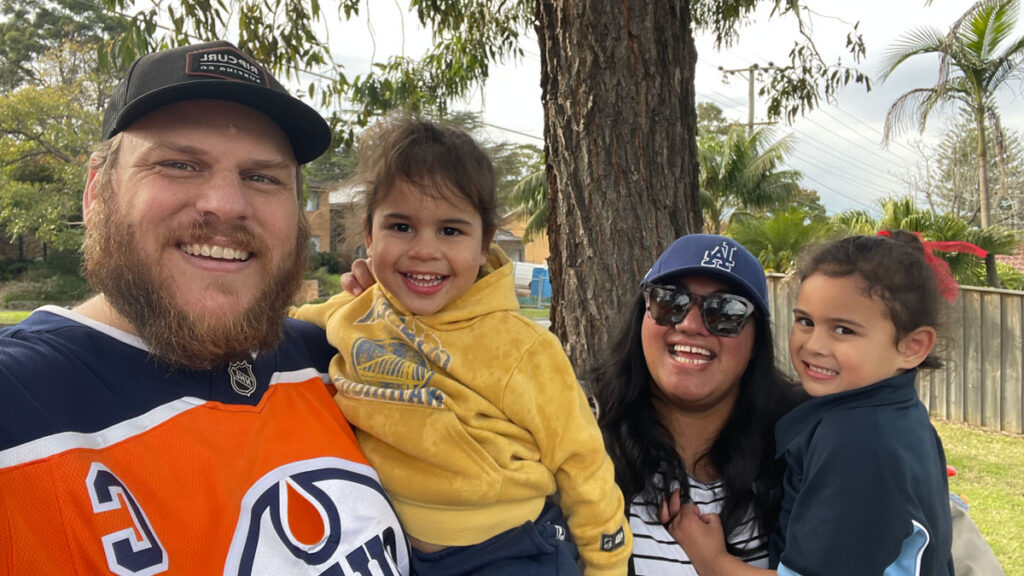The Hebrew word חתן ‘atan is a relational term that may refer to a father-in-law, husband/bridegroom (ie a person related by marriage, an in-law).1 An example of relational use is in the story of Moses. Jethro is the father-in-law (חתן) of Moses (Exodus 4:18; 18:1f), while Moses is also the bridegroom-husband (חתן) of Zipporah (Exodus 4:24-26). A careful reading of the story of Moses reveals the more profound meaning and implications of חתן (‘atan) for God-designed leadership, a Mentor.
The first person Moses talks to after the burning bush is Jethro, his ‘atan/Mentor (Exodus 4:18-24). While Moses is not completely candid, we can already observe a supportive attitude from the Mentor in the farewell, “Go in peace.” The enigmatic account that follows twice affixes the epithet ‘atan to Moses, “now you have become an ‘atan of blood”(vv25,26). Thus, Moses, while being a Mentee of Jethro, is himself a Mentor.
Zipporah’s repeated phrase hints at conflict in their marriage since Zipporah and the children are not mentioned again until Exodus 18:2. We read, “Now, Jethro, Moses’ father-in-law had taken Zipporah, Moses’ wife, after he had sent her home, along with her two sons” (Exodus 18:2,3a). Evidently, the family unit was separated during part or all of the plagues and the exodus. Moses was too busy doing the Lord’s work to reconnect with his family. Nevertheless, when he hears, perhaps indirectly, of how God had mightily used Moses, Jethro, the Mentor of Moses, came in search of Moses (Exodus 18:1).
Jethro, the Mentor, takes the initiative to return Moses’ family to him.2 According to Jethro, Zipporah is Moses’ wife, not his daughter, and Gershom and Eliezer are Moses’ children, not Jethro’s grandchildren (v2-5). The onus of these relationships on Moses creates tension in the narrative between Moses’ account of the apparent success of God using him to lead Israel out of Egypt that follows (vv8-12) and his ineffectiveness on a personal level to fulfil the responsibilities (his ‘atan duty’) to his own family.
Moses and Jethro are deeply interested in each other’s welfare (v7). Moses is eager to share all the Lord has done. Jethro responds in three ways: (a) he rejoiced for ”all the good” (v9) performed by the Lord; (b) he offered a blessing and confessed recognising through the testimony of Moses, the supremacy of the LORD over all other gods (v11); (c) he brought a sacrifice to offer to God and broke bread with Aaron and all the elders of Israel (v12). The breaking of bread shows the hospitable spirit of Jethro and serves as an opportunity for the Mentor to begin to understand the relationship roadblocks to enduring success in Moses’ spiritual leadership.
“The next day” (v13), Jethro observes Moses in action. Jethro observes the inefficiency and ineffectiveness of Moses’ who sat alone while everyone else stood around. When Jethro saw this, he asked probing questions of Moses (v14). “What are you doing for the people?” and “Why are you doing it?” Moses’ response to his Mentor was to justify his method. Moses claims his responsibility is to make God’s decisions known to each person, and then, in this process, he makes God’s statutes and laws known to the people v15-16. The answer to the “why?” question is implicit in Moses’ response: nobody else can decide disputes except Moses. After all, God chose Moses at the burning bush to lead His people.
Jethro responds to Moses’ self-justification with a blunt, “What you are doing is not good” (v17). This is in contrast to Jethro rejoicing “in all the good” the Lord had done (v9). Further, that “you (Moses) and the people will certainly wear yourselves out”. In the Hebrew text, the word order and repetition emphasise “wearing out” navol tibbol, repeating the lexeme נבל nabal. The semantic range includes “foolish”, “wither”, and even “a corpse”. All of these seem appropriate: Moses’ leadership model was foolish, having a withering effect on himself and the people, and would result in death if not remedied.3
Jethro, the Mentor, presented Moses with advice: a God-directed model of leadership that would result in Moses thriving in every relationship and the people satisfied. First, Moses’ responsibility was to intercede before God on behalf of the people and bring their cases before Him. Second, Moses was responsible for teaching the people God’s statutes and laws and how they were to live. Thus, Moses was to engage in proactive teaching and training rather than reactive crisis management. Third, Moses was to appoint capable, God-fearing, trustworthy and incorruptible leaders over divisions of people who would apply the statutes and laws of God in resolving disputes (v21). Thereby leaving Moses to deal with complicated cases, easing the load by sharing the burden of leadership.
Jethro clarifies with Moses that if he accepts his advice, the overall plan he described will be filled in as God prayerfully directs Moses (v23).4 Perhaps Moses misunderstood that since God had chosen him to lead the children of Israel out of Egypt, he alone could fulfil the duties required to lead the people. However, the arrival of Jethro, his spiritual Mentor and confidant, revealed that notwithstanding God’s calling, Moses had scope to teach, train, prayerfully appoint leaders, and mentor them to assist him in administering God’s statutes and laws.
While God called Moses, He also blessed Jethro with wisdom and tact to offer helpful advice to expand Moses’ understanding of his duty as the human leader. Through Jethro, He revealed the primary responsibility of leaders is to train and resource fellow leaders to share the burden of leadership with them. Moses would be able to endure and thrive in his God-appointed role, and his appointed leaders would have the opportunity to grow, develop and appreciate the sacred responsibility of spiritual leadership. Moreover, the people would benefit from greater efficiency of judgements and ”return to their place in peace”.
Based on the account of Jethro and Moses, the following lessons emerge regarding Mentors.
A Mentor is:
- A person who listens to spirit-filled plans and testimonies supportively.
- A person who learns from what God has done and is doing in the Mentee’s life, rejoicing with the Mentee.
- A hospitable, relational person who desires to bring unity to the relationships of the Mentee, most notably family unity.5
- A keen observer spending time actively observing the Mentee engaged in their work.
- A person who asks probing questions to clarify and understand what is going on and the reasons why before offering advice.
- A person who provides advice humbly and empoweringly (v23). ie God will guide you in carrying out this plan.
- A person who leaves scope for the Mentee, as directed by God, to fill in the details, ie, in selecting able, trustworthy, honest leaders.
- One who helps Mentees grow as Mentors.
I confess that, like Moses, I have heard God’s call to ministry and felt I had to do it all. I have experienced the withering effects of such a style of leadership. I pray for humility and to accept the godly advice of a spiritual mentor like Jethro.
- Ludwig Koehler et al, The Hebrew and Aramaic Lexicon of the Old Testament (Leiden: EJ Brill, 1994–2000), p364. HALOT lists three entries with the root letters חתן depending on the vocalisation to mean either marry, father-in-law or husband/daughter’s husband. This article argues that the term denotes a special relationship, regardless of vocalisation, that includes mentoring.
- Ellen White, Patriarchs and Prophets, p300-1.
- Hartness M Samushonga, “Distinguishing Between the Pastor and the Superhero: God on Burnout and Self-care”, Journal of Pastoral Theology 31 no 1 (2021):p4-19.
- Joy Jones-Carmack, “Understanding Discipling and Mentoring Through an Exegetical Analysis of Exodus 18:13-23 and Judges 2:6-17” The Journal of Applied Christian Leadership, 15 no 2 (Fall 2021): p11-26.
- Ellen White, Adventist Home, p32.
David Fletcher is a pastor in the South Australian Conference.






